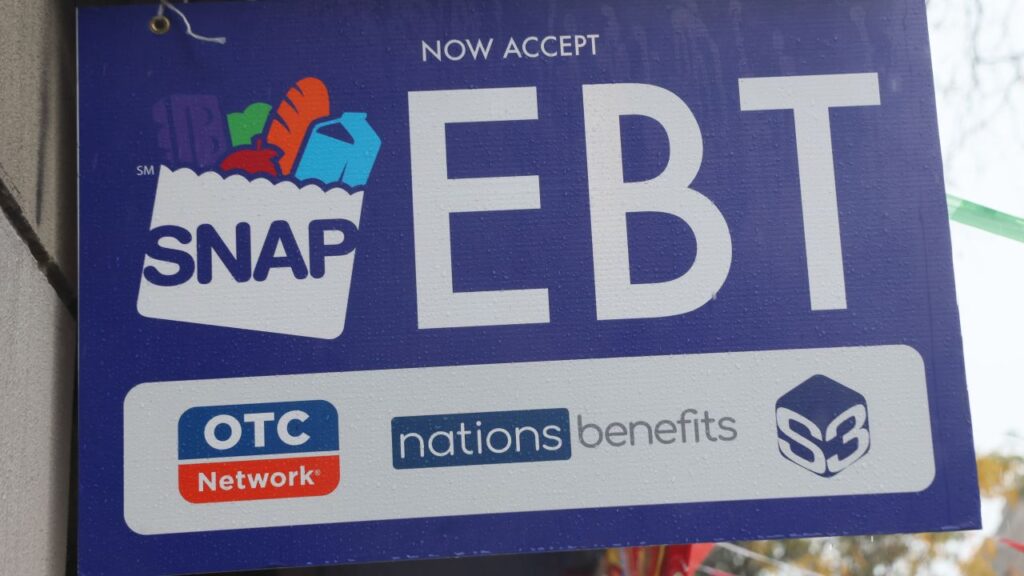Washington, D.C. – Two federal judges have ruled that the Trump administration must tap into billions of dollars in emergency funds to at least partially cover food stamp benefits in November, as the government shutdown continues to impact millions of Americans.
SNAP Benefits at Risk
The rulings come after the Supplemental Nutrition Assistance Program (SNAP), which feeds more than 40 million Americans, faced potential delays due to the month-long shutdown. Millions of recipients were scheduled to receive benefits starting tomorrow, but disruptions caused by the shutdown threaten timely distribution.
House Minority Leader Hakeem Jeffries applauded the rulings, stating, “We’re thankful for these decisions. Funds exist for exactly this reason, and hunger should never be weaponized in political battles.” Jeffries emphasized that Democrats are pushing for a bipartisan funding deal to reopen the government, highlighting expiring Affordable Care Act tax credits as a sticking point.
Meanwhile, top Trump administration officials, including Economic Adviser Kevin Hassett and Agriculture Secretary Brooke Rollins, criticized the rulings, labeling them “liberal judge decisions” and questioning the use of contingency funds. The USDA reports roughly $5.3 billion remains in the fund, enough to partially cover benefits, but millions could still face delays.
Federal Workers Struggle Amid Shutdown
Hundreds of thousands of federal employees are continuing to work without pay, many turning to food banks and dipping into savings to make ends meet. Transportation Secretary Sean Duffy noted that some essential staff, including air traffic controllers, are calling in sick or working second jobs due to the ongoing shutdown.
Air Traffic Control Delays Spread Nationwide
The Federal Aviation Administration (FAA) reported staffing shortages across 32 air traffic control facilities, prompting delays at major airports including LaGuardia, JFK, Boston Logan, Houston George Bush International, and William P. Hobby. Newark Liberty International Airport faces average delays of nearly two hours due to staffing constraints. The FAA has confirmed that while some delays can be mitigated by rerouting flights, safety concerns occasionally necessitate slowing planes down.
White House Press Access Restrictions
In a move affecting media coverage, the White House Communications Office issued a memo restricting press access to Room 140 in the West Wing, also known as “Upper Press.” The memo cites the handling of sensitive material by White House Communications staff, a continuation of recent changes aimed at controlling press coverage. Earlier this year, the White House also took over the management of the Press Pool and implemented stricter rules for reporters covering Defense Department matters, prompting widespread criticism from news outlets.
Trump Administration Foreign Policy Updates
President Trump made multiple statements regarding international affairs, including designating Nigeria as a “Country of Particular Concern” over alleged violations of religious freedom, denying plans to strike Venezuela, pausing trade negotiations with Canada, and confirming that Hungary requested, but did not receive, an exemption from U.S. sanctions on Russian oil.
Trump also hinted at resuming nuclear testing, citing perceived threats from Russia and China, though details remain vague. The last U.S. nuclear test occurred in 1992, with computer simulations used since then to maintain the arsenal.
White House Tours Resume in December
After a pause due to East Wing renovations, public tours of the White House will resume in December with an updated route. Visitors will have access to the State Floor, including the Cross Hall, East Room, and several historic rooms, while some ground floor spaces are now being used for First Lady Melania Trump’s staff offices.
Impact on American Families
With federal benefits uncertain, the government shutdown continues to strain households. Lawmakers from both parties stress the urgency of negotiations, with SNAP recipients, federal employees, and travel-dependent citizens bearing the immediate brunt of the shutdown’s effects.

